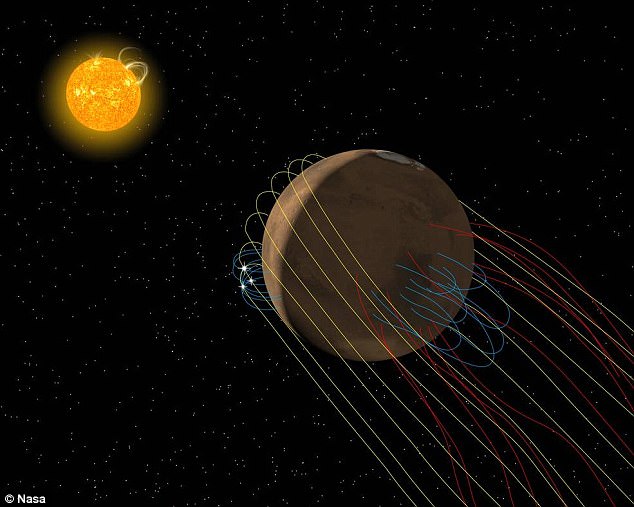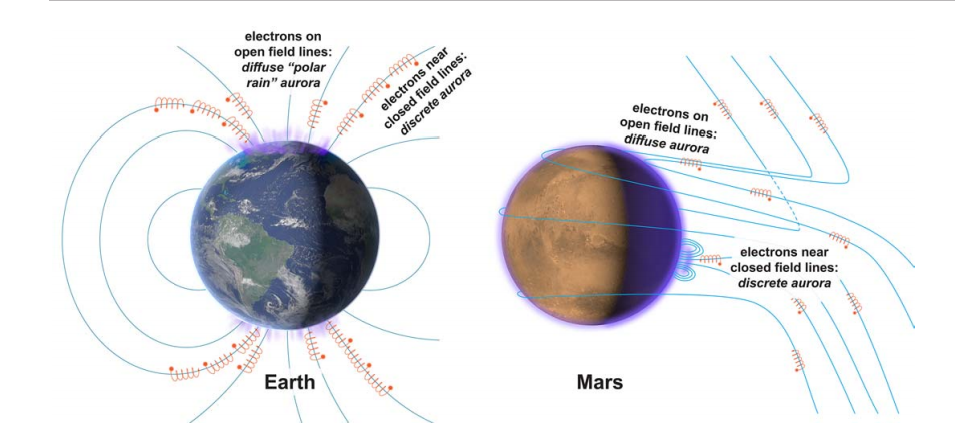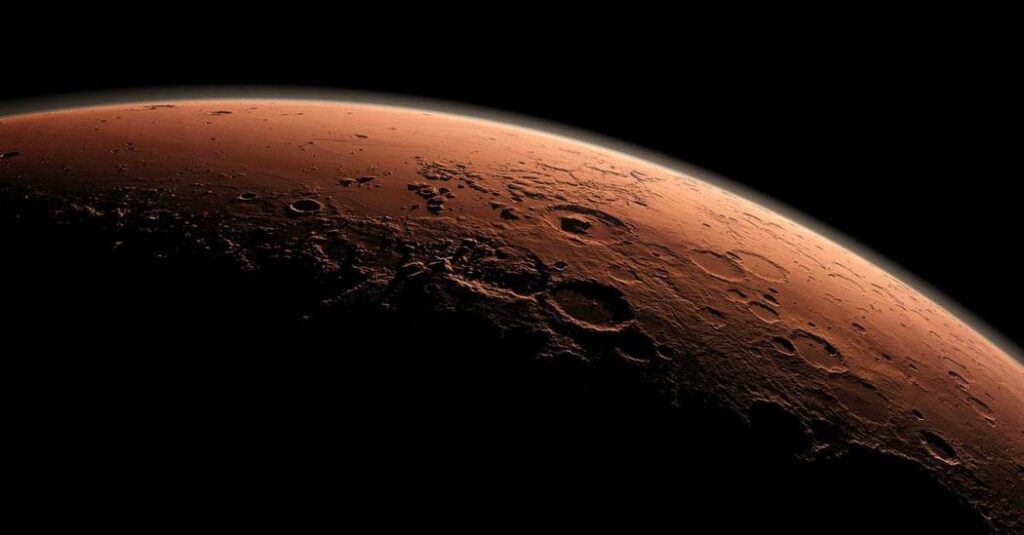NASA has recently discovered an invisible magnetotail trailing behind Mars, which is far more twisted than any other such magnetic tail in our solar system. An analysis of data collected by NASA’s Mars Atmosphere and Volatile Evolution Mission (MAVEN) spacecraft, this magnetotail is quite unlike similar feature associated with Earth and Venus and may be a contributing factor to the thinning of the planet’s already light atmosphere.
Gina DiBraccio, the project scientist at NASA’s Goddard Space Flight Center in Greenbelt, said that the magnetic tail found at Mars was neither like the magnetotail found at Venus, which has no magnetic field of its own, nor like the one found around Earth, which has its own internally generated magnetic field, but a hybrid between these two magnetic tails.

The twisted magnetic tail is likely to be an outcome of a process called ‘magnetic reconnection.’ Mars lost its magnetic field several billion years ago. However, the ‘fossils’ of that magnetic field are still present in certain parts of its surface. The invisible magnetotail is a result of the magnetic fields emanating from solar winds reconnecting with the remnants of magnetic fields of Mars’ surface. Experts believe this phenomenon could result in withering away of whatever little atmospheric layer exists around the planet. Mars’ upper atmosphere comprises ions or electrically charged particles that are designed to flow along the magnetic field. The ‘magnetic reconnection’ phenomenon provides them a ‘pathway to space’, thereby resulting in the depletion of the atmospheric layer.

DiBraccio was quoted by the Daily Mail as saying, “Our model predicted that magnetic reconnection will cause the Martian magnetotail to twist 45 degrees from what’s expected based on the direction of the magnetic field carried by the solar wind. When we compared those predictions to MAVEN data on the directions of the Martian and solar wind magnetic fields, they were in very good agreement.”
The MAVEN spacecraft was sent out to orbit around Mars with a view to understand how it lost its water and atmosphere. The revelation of an invisible magnetic field, which was made public at the 49th annual meeting of the American Astronomical Society’s Division for Planetary Sciences in Utah, could throw up some pertinent answers regarding this complex planet and its mysterious ways.
The scientists’ focus will now be on examining additional data collected by instruments aboard MAVEN to ascertain if the escaping particles, in fact, follow the reconnecting magnetic fields, and their contribution to atmospheric loss.




